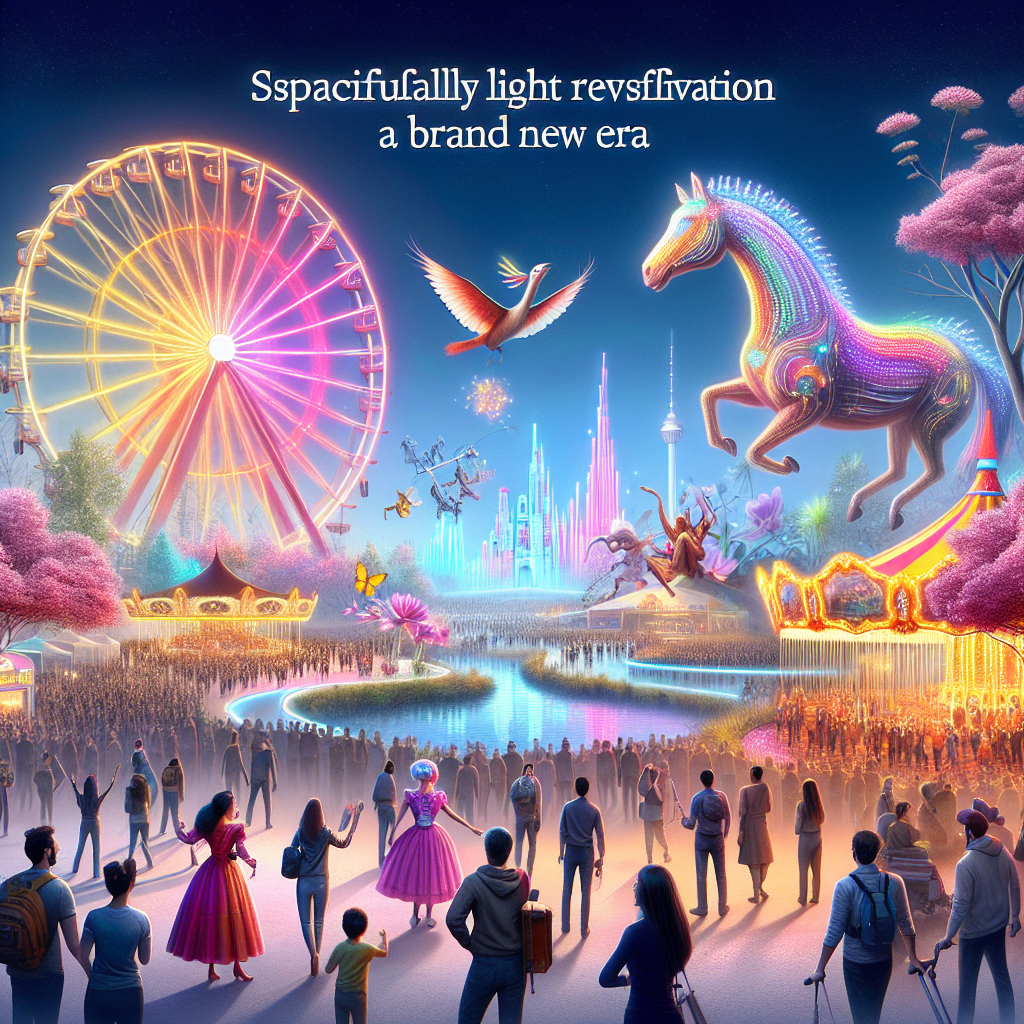Disney’s Bold New Era: How Woke Culture is Transforming the Magic Kingdom Forever
In recent years, Disney has become a focal point in the debate over "woke" culture in the entertainment industry. From embracing diversity in its storytelling to addressing social issues more openly, the Mouse House is navigating a transformative phase that is reshaping its iconic brand. With a legacy built on fairy tales and timeless characters, how is Disney adapting to the demands of a modern audience that increasingly values representation and inclusivity? Let’s explore the key changes that signal a bold new era for Disney.
The Push for Diversity and Representation
One of the most noticeable shifts in Disney's approach has been its commitment to diversity and representation across its films and theme parks. Gone are the days when princesses were predominantly white and stories were told through a narrow lens. Disney has made concerted efforts to showcase characters from various cultural backgrounds, as seen in films like "Moana," which celebrates Polynesian culture, and "Raya and the Last Dragon," inspired by Southeast Asian aesthetics and storytelling traditions.
This evolution goes beyond just casting choices. Disney is also engaging in authentic storytelling that reflects the complexities of different cultures and experiences. For instance, in "Encanto," the story of a Colombian family is told with a depth and nuance that resonates with audiences around the world. This shift not only broadens Disney's appeal but also sets the stage for future generations to see themselves represented in the characters they admire.
Addressing Social Issues Through Storytelling
Disney's new focus on social issues is reshaping the narratives it chooses to tell. In recent years, the company has tackled topics such as mental health, family dynamics, and social justice within its animated and live-action features. The animated series "Amphibia" and "The Owl House," for example, have been praised for their nuanced portrayals of LGBTQ+ characters, showcasing stories that resonate with young audiences navigating their own identities.
This approach is a deliberate move away from the traditional narratives that often sidestepped complex themes. Disney's willingness to engage with real-world issues not only adds depth to its characters but also sparks conversations among families and communities. While some critics argue that these themes may not belong in children's media, supporters assert that storytelling can be a powerful tool for education and empathy, encouraging young viewers to understand and appreciate diverse perspectives.
Theme Parks: Redefining the Disney Experience
Disney's transformation isn't limited to its screen offerings; the theme parks are also undergoing a significant evolution. The company is actively reimagining its attractions to better reflect contemporary values and to promote inclusivity. For instance, the recent overhaul of Splash Mountain into Tiana's Bayou Adventure is a direct response to calls for more representation. This new attraction is inspired by "The Princess and the Frog," which features Disney's first Black princess, Tiana, and focuses on themes of community and resilience.
Moreover, Disney is making strides to ensure that its parks are accessible and welcoming to everyone. Initiatives include sensory-friendly experiences for guests with autism, dedicated prayer spaces, and even gender-neutral restrooms. Such changes signal that Disney is not just a place of enchantment but also a space that honors and respects the identities and experiences of its guests. This commitment to inclusivity is likely to attract a broader audience, reinforcing the company's relevance in a rapidly changing cultural landscape.
The Backlash and the Future of Disney
Despite these positive strides, Disney has not been without its critics. The company has faced backlash from certain conservative groups who believe that its embrace of "woke" culture is alienating traditional fans. Some have even called for boycotts, arguing that Disney is prioritizing political correctness over storytelling. This tension between maintaining its beloved legacy and adapting to modern values poses a unique challenge for the company moving forward.
Nevertheless, Disney appears committed to its new direction, recognizing that the world has changed drastically since its inception. As younger audiences demand more representation and authenticity, the company seems poised to continue evolving. Whether through its films, television shows, or theme parks, Disney’s efforts to embrace diversity and tackle social issues may very well redefine the magic of the kingdom for generations to come.
In conclusion, Disney’s embrace of woke culture is not merely a trend but a significant shift in how the company approaches storytelling and guest experience. As they navigate this bold new era, one thing is clear: the magic of Disney is evolving to be more inclusive, representative, and socially aware than ever before.

No comments yet. Be the first to comment!